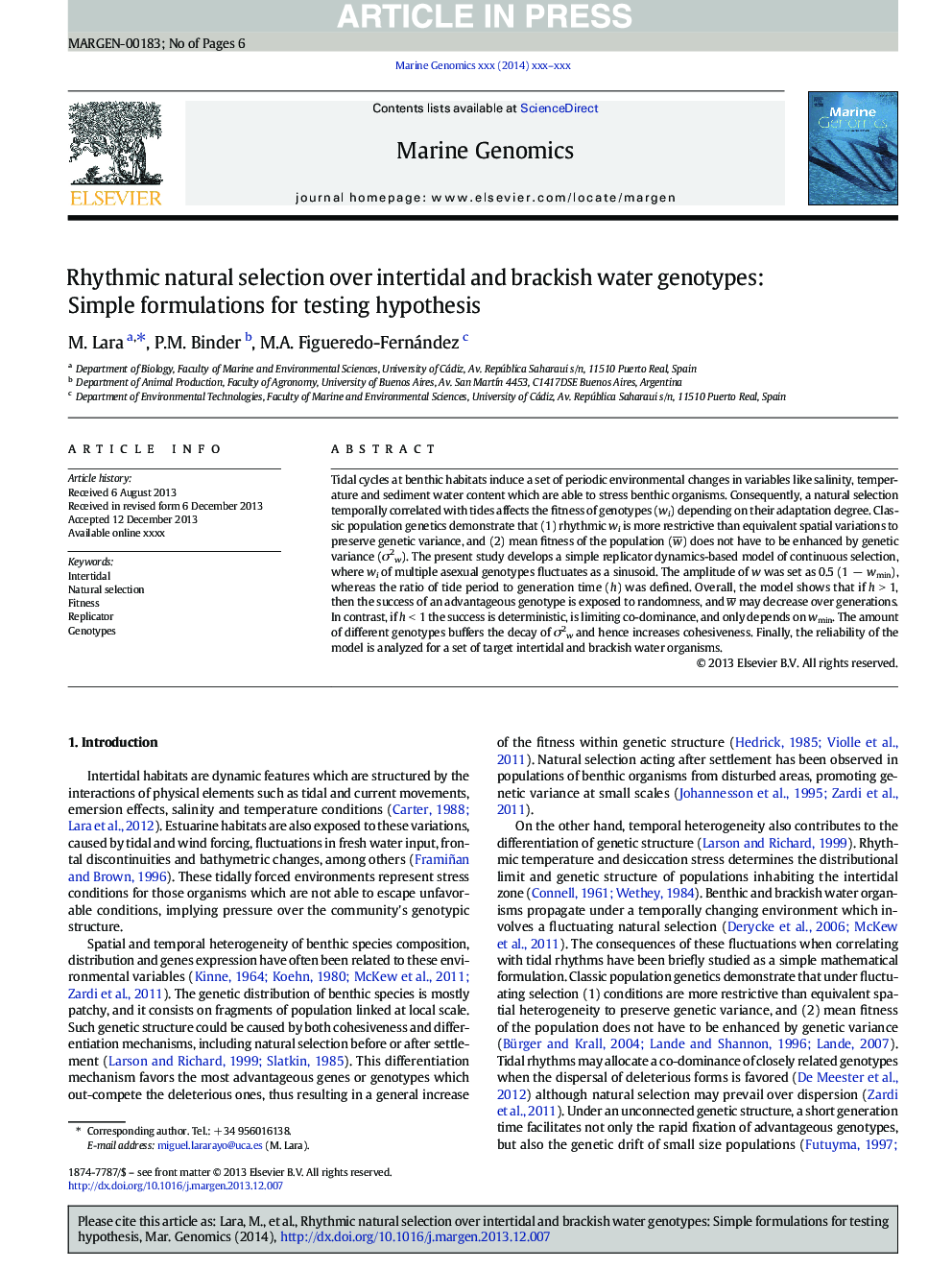| Article ID | Journal | Published Year | Pages | File Type |
|---|---|---|---|---|
| 8388714 | Marine Genomics | 2014 | 6 Pages |
Abstract
Tidal cycles at benthic habitats induce a set of periodic environmental changes in variables like salinity, temperature and sediment water content which are able to stress benthic organisms. Consequently, a natural selection temporally correlated with tides affects the fitness of genotypes (wi) depending on their adaptation degree. Classic population genetics demonstrate that (1) rhythmic wi is more restrictive than equivalent spatial variations to preserve genetic variance, and (2) mean fitness of the population (w¯) does not have to be enhanced by genetic variance (Ï2w). The present study develops a simple replicator dynamics-based model of continuous selection, where wi of multiple asexual genotypes fluctuates as a sinusoid. The amplitude of w was set as 0.5 (1 â wmin), whereas the ratio of tide period to generation time (h) was defined. Overall, the model shows that if h > 1, then the success of an advantageous genotype is exposed to randomness, and w¯ may decrease over generations. In contrast, if h < 1 the success is deterministic, is limiting co-dominance, and only depends on wmin. The amount of different genotypes buffers the decay of Ï2w and hence increases cohesiveness. Finally, the reliability of the model is analyzed for a set of target intertidal and brackish water organisms.
Related Topics
Physical Sciences and Engineering
Earth and Planetary Sciences
Earth and Planetary Sciences (General)
Authors
M. Lara, P.M. Binder, M.A. Figueredo-Fernández,
